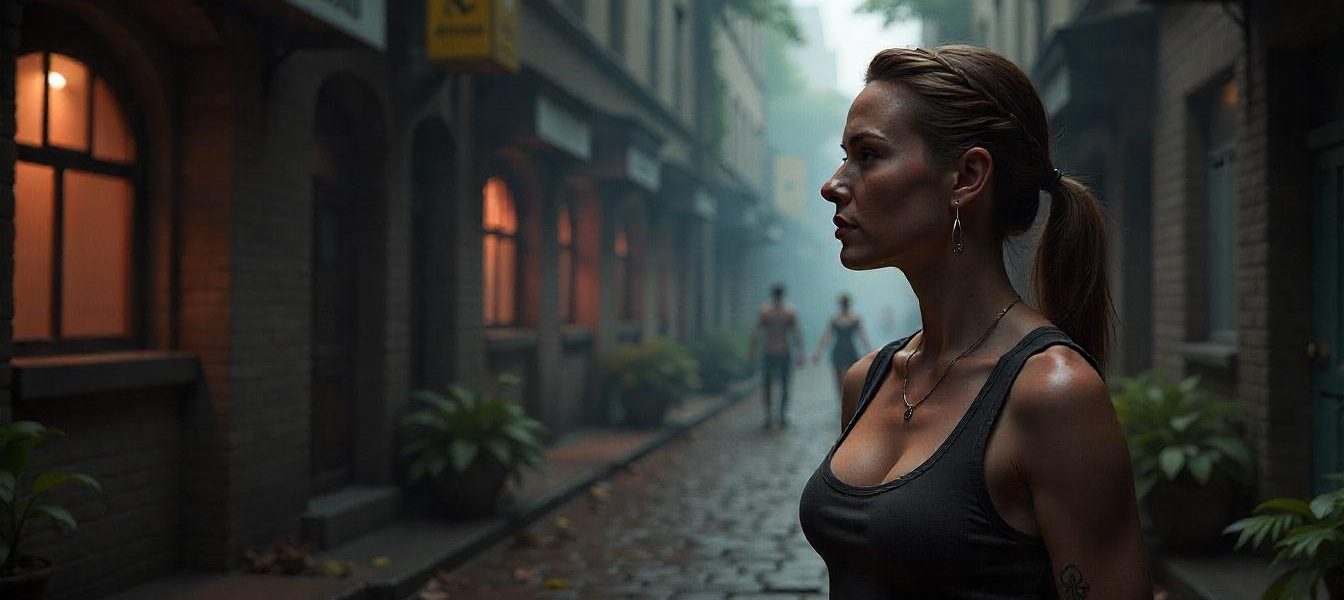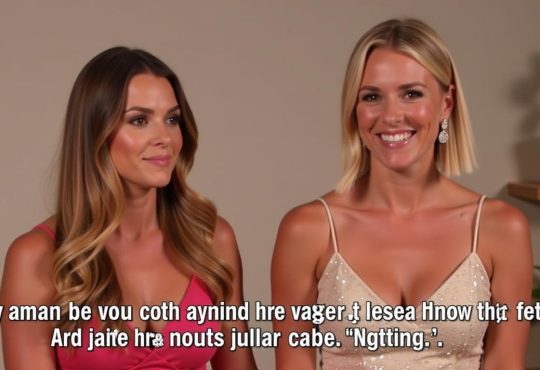
Elisabeth Ovesen: In the interview Sensational information came out
Elisabeth Ovesen, formerly known as Karrine Steffans, remains a significant and polarizing figure in the world of hip-hop and entertainment. Her memoir Confessions of a Video Vixen, published nearly two decades ago, shook the industry with revelations about the mistreatment of women and the opulence of hip-hop’s golden age. As she gears up to release a 20th-anniversary edition of her memoir, Elisabeth Ovesen continues to shed light on the dark corners of the entertainment world, particularly focusing on female autonomy, exploitation, and the power dynamics that persist behind the scenes.
A Controversial Encounter with Diddy
In a recent interview with The Daily Beast, Elisabeth Ovesen reflected on a particular incident from February 2001, when she was allegedly “gifted” to music mogul Sean Combs, also known as Diddy, after a day of drug-fueled partying in Los Angeles. According to her account, she had spent the day consuming pills and alcohol with high-ranking music executives. As they were leaving a club in the early morning hours, Diddy’s car pulled up. Ovesen recalls that, after a brief exchange, Diddy requested that she be sent to his house.
“In retrospect, I realized that I was given to him as a gift by another executive,” Ovesen revealed, identifying Irv Gotti, the head of Murder Inc Records, and rapper Ja Rule as the individuals who arranged the meeting. At the time, Diddy was fresh off his split with Jennifer Lopez and was one of the most influential figures in hip-hop.
Although this encounter may raise eyebrows, Elisabeth Ovesen clarified, “I was not one of his victims,” acknowledging that she entered the situation fully aware of what was expected. She stressed the importance of providing space for those who were victimized, noting that her experiences were more about observation and survival in an industry where “nearly everything goes.”
The Rise of a Video Vixen
Ovesen’s career as a video vixen began at the height of hip-hop’s lavish era. Music videos in the early 2000s had become massive productions with million-dollar budgets. In 2000, Ovesen appeared in Jay-Z’s video for “Hey Papi,” a production that reportedly cost $1 million. Her appearance helped catapult her into the inner circles of some of the most powerful names in the industry.
Diddy, who was at the forefront of this opulent lifestyle, represented an opportunity for Ovesen to immerse herself further into the world of hip-hop elites. However, as she later wrote in her memoir, the industry was rife with exploitation, particularly of young women who were often seen as accessories to the stars. Through her experiences, Ovesen sought to reveal the objectification and the darker realities behind the glitz and glamour.
Changing the Conversation on Female Autonomy
In Confessions of a Video Vixen, Elisabeth Ovesen opened the door to conversations about female sexual autonomy in a male-dominated industry. Her memoir detailed her relationships with several high-profile figures, including Jay-Z, DMX, Vin Diesel, Lil Wayne, Method Man, and even television host Bill Maher. Although these relationships were sensationalized in the media, Ovesen clarified that many of them were not mere flings but long-term partnerships. She emphasized that she wasn’t ashamed of her past but wanted to shift the narrative around women in the entertainment industry.
“I wanted to tell my story not as a victim, but as a woman who had control over her own decisions, even in a world where women were often treated as objects,” Ovesen explained. Her memoir wasn’t just about scandal—it was about reclaiming her narrative and shedding light on the pressures faced by women in the entertainment world.
Inside the Wild Parties of Hip-Hop’s Elite
Perhaps one of the most infamous stories from Elisabeth Ovesen’s memoir is her account of a lavish party allegedly hosted by Diddy at his mansion on Miami’s Star Island. Describing it as something out of The Great Gatsby, Ovesen painted a vivid picture of men in tuxedos, topless women dressed as angels, and synchronized swimmers in the pool. Beneath the luxurious facade, however, there were trays of drugs being passed around, group sex in the bathrooms, and an anything-goes atmosphere.
This depiction of excess and debauchery was shocking to many, but Ovesen’s detailed accounts gave the public a glimpse into the hedonistic lifestyle of the hip-hop elite during the early 2000s. This period of extravagance was often celebrated in music videos, but her memoir provided a behind-the-scenes look at the cost of such a lifestyle, especially for the women involved.
Legacy and Influence
Although Confessions of a Video Vixen was initially met with resistance from mainstream media, it quickly gained popularity in Black households and hip-hop circles. The book became an early bestseller because it pulled back the curtain on power, sex, and exploitation in a way that had never been done before in hip-hop culture. Elisabeth Ovesen’s willingness to discuss the uncomfortable truths of the industry resonated with readers, particularly those who had witnessed or experienced similar situations.
Her 2006 appearance on Oprah Winfrey’s show, Smart Women on Stupid Girls, further elevated her platform, allowing her story to reach a wider audience. While some criticized her for airing the industry’s dirty laundry, Ovesen stood by her decision, asserting that her memoir was about more than just gossip—it was about empowering women to own their stories.
Looking Forward: The 20th Anniversary Edition
As Elisabeth Ovesen prepares for the 20th-anniversary release of Confessions of a Video Vixen in 2024, she hopes to continue the conversation she started nearly two decades ago. Her experiences in the industry and the lessons she’s learned are still relevant today, especially as discussions about power dynamics, sexual exploitation, and gender inequality in the entertainment world persist.
In a culture where women are often judged by their associations with powerful men, Elisabeth Ovesen stands as a figure who redefined her role from a video vixen to an author and advocate for female empowerment. Her story reminds us that behind the glitz and glamour, there are real people navigating complex situations—and their stories deserve to be told.
Conclusion
Elisabeth Ovesen’s journey from video vixen to bestselling author is a testament to the power of storytelling and reclaiming one’s narrative. Her candid revelations about the hip-hop industry’s treatment of women, along with her call for conversations about female autonomy, have left a lasting impact on the entertainment world. As she prepares to launch the 20th-anniversary edition of Confessions of a Video Vixen, Elisabeth Ovesen’s legacy as a truth-teller and advocate for women’s rights continues to grow, encouraging others to speak out and take control of their own stories.



